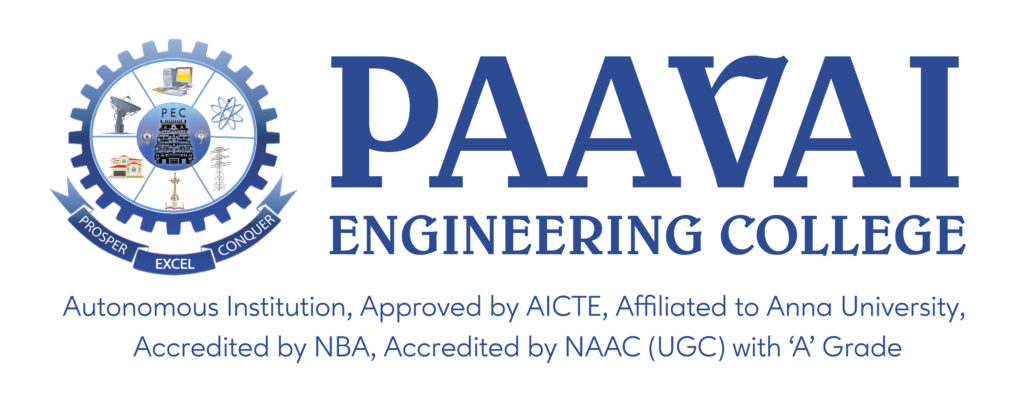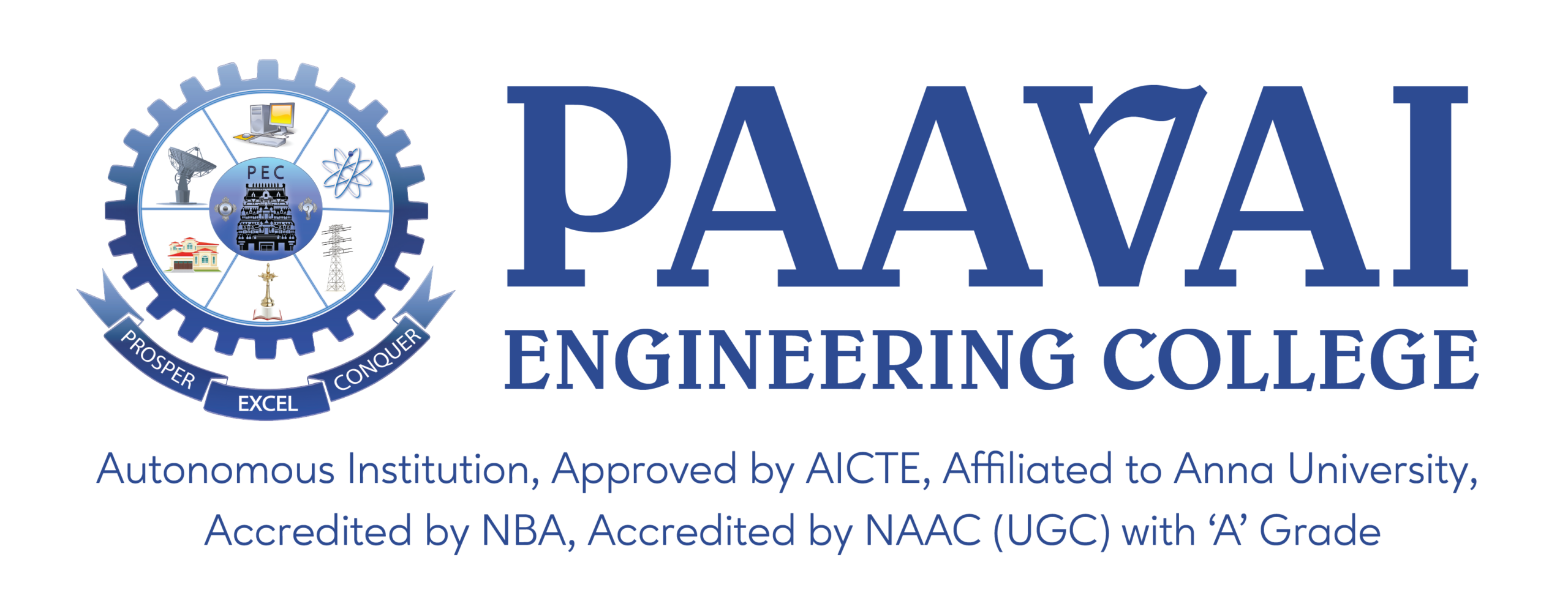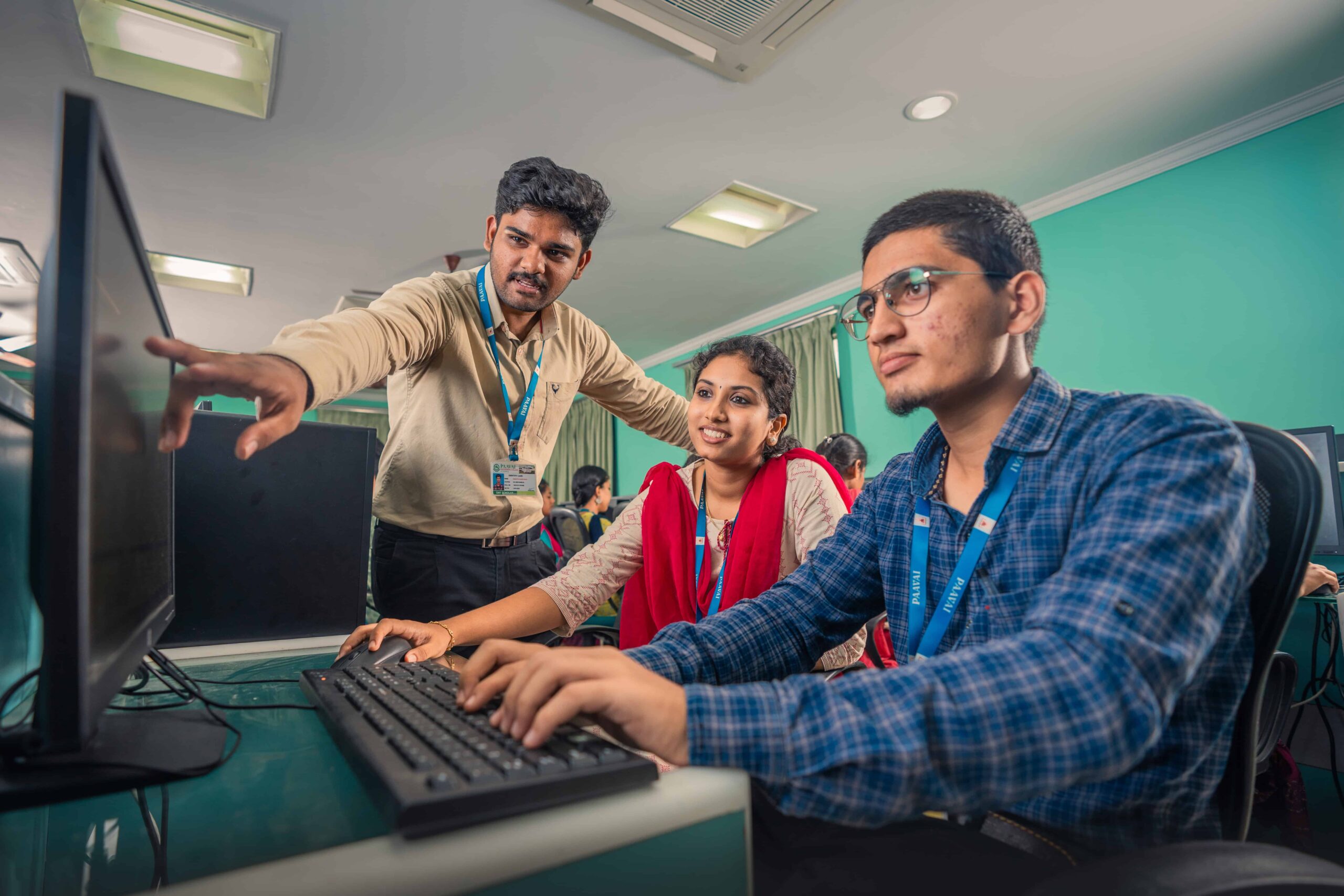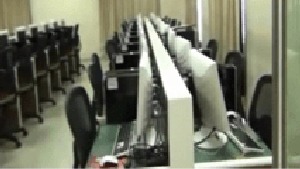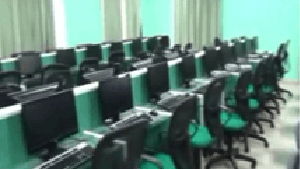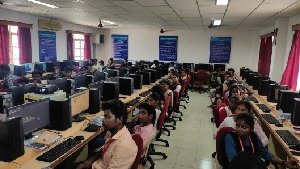-
About the Department
-
Vision and Mission
-
PEOs, POs, and PSOs
-
Head of the Department
-
Faculty Information
-
Laboratory Facility
-
Department Library
About the Department
The Department of Computer Science and Engineering (Artificial Intelligence and Machine Learning) established in the year 2022 and follows an Outcome-Based Education (OBE) framework aligned with AICTE and NBA guidelines, with clearly defined PEOs, POs, PSOs, and COs. Continuous assessment, attainment analysis, and stakeholder feedback are systematically used for quality enhancement and continuous improvement.
The department offers an industry-relevant curriculum covering core and advanced areas such as Artificial Intelligence, Machine Learning, Data Science, Deep Learning, Computer Vision, and Natural Language Processing. The curriculum integrates theoretical rigor with experiential learning, enabling students to apply concepts to real-world engineering problems.
To strengthen practical competence, the department emphasizes experiential and project-based learning through well-equipped laboratories, mini and major projects, internships, industry-based problem statements, and case studies. These initiatives enhance analytical ability, problem-solving skills, and professional readiness.
A strong focus is placed on industry interaction and employability enhancement through guest lectures, industrial visits, training programs, certification courses, and collaborative activities with industry experts. Interdisciplinary learning and entrepreneurial initiatives are encouraged to foster innovation and startup orientation.
The department actively promotes a research and innovation culture, encouraging faculty and students to engage in research publications, conferences, workshops, funded project proposals, and hackathons. Continuous learning is supported through FDPs, seminars, and technical forums.
Ethics, sustainability, and social responsibility are embedded into teaching-learning practices, with emphasis on responsible AI, professional ethics, data privacy, and environmental awareness. Student projects and activities are aligned towards societal relevance and sustainable development.
A structured mentoring and student support system ensures academic monitoring, career guidance, and holistic development. Remedial measures and enrichment programs are implemented to support diverse learner needs.
Through systematic planning, effective implementation, and continuous improvement practices, the department strives to achieve excellence in teaching-learning, research, innovation, and stakeholder satisfaction, contributing to globally competent and socially responsible AI and ML professionals.
Vision and Mission
Vision
To deliver transformative technical education that shapes students into globally competent, ethically responsible, and sustainability-driven CSE (Artificial Intelligence and Machine Learning) professionals. We strive to cultivate advanced skills, interdisciplinary expertise, and hands-on experience, enabling them to tackle global challenges and drive positive societal impact through innovation
Mission
- To provide a strong foundation in engineering principles and CSE (AI and ML) technologies, integrating academic rigor with practical problem-solving to prepare students for real-world challenges.
- To nurture ethically responsible and sustainability-conscious engineers by embedding social, environmental, and professional values into the curriculum and campus culture.
- To enhance student employability and innovation capacity through interdisciplinary learning, hands-on projects, industry collaboration, internships, and entrepreneurial initiatives.
- To promote a vibrant culture of research, development, and continuous learning, empowering students and faculty to create transformative solutions with global relevance and societal impact.
PEOs, POs, and PSOs
Programme Educational Objectives | ||
| PEO1 | Global reputation | To create value added, disciplined, high profile CSE (Artificial Intelligence and Machine Learning) professionals for successful careers in their related Industry that makes them globally reputed. |
| PEO2 | Fundamental Knowledge | To develop the students with a sound foundation in mathematical, scientific and engineering fundamentals necessary to synthesize the technical core concepts focusing on skill development and knowledge up gradation which will lead to technical innovations. |
| PEO3 | Continuous learning | To practice and demonstrate the ability to use the domain knowledge and expertise through periodic assignments, performances and projects to continuously prove the functionality of CSE(Artificial Intelligence and Machine Learning) in social and environmental aspects and to make allowances for further improvements. |
Programme Outcomes | |
| PO1 | Engineering Knowledge: Apply knowledge of mathematics, natural science, computing, engineering fundamentals and an engineering specialization as specified in WK1 to WK4 respectively to develop to the solution of complex engineering problems. |
| PO2 | Problem Analysis: Identify, formulate, review research literature and analyze complex engineering problems reaching substantiated conclusions with consideration for sustainable development. (WK1 to WK4) |
| PO3 | Design/Development of Solutions: Design creative solutions for complex engineering problems and design/develop systems/components/processes to meet identified needs with consideration for the public health and safety, whole-life cost, net zero carbon, culture, society and environment as required. (WK5) |
| PO4 | Conduct Investigations of Complex Problems: Conduct investigations of complex engineering problems using research-based knowledge including design of experiments, modelling, analysis & interpretation of data to provide valid conclusions. (WK8). |
| PO5 | Engineering Tool Usage: Create, select and apply appropriate techniques, resources and modern engineering & IT tools, including prediction and modelling recognizing their limitations to solve complex engineering problems. (WK2 and WK6) |
| PO6 | The Engineer and The World: Analyze and evaluate societal and environmental aspects while solving complex engineering problems for its impact on sustainability with reference to economy, health, safety, legal framework, culture and environment. (WK1, WK5, and WK7). |
| PO7 | Ethics: Apply ethical principles and commit to professional ethics, human values, diversity and inclusion; adhere to national & international laws. (WK9) |
| PO8 | Individual and Collaborative Team work: Function effectively as an individual, and as a member or leader in diverse/multi-disciplinary teams. |
| PO9 | Communication: Communicate effectively and inclusively within the engineering community and society at large, such as being able to comprehend and write effective reports and design documentation, make effective presentations considering cultural, language, and learning differences |
| PO10 | Project Management and Finance: Apply knowledge and understanding of engineering management principles and economic decision-making and apply these to one’s own work, as a member and leader in a team, and to manage projects and in multidisciplinary environments. |
| PO11 | Life-Long Learning: Recognize the need for, and have the preparation and ability for i) independent and life-long learning ii) adaptability to new and emerging technologies and iii) critical thinking in the broadest context of technological change. (WK8) |
Programme Specific Outcomes (PSOs) |
|
| PSO1 | Intelligent Software Systems: Apply the principles of cognitive computing, Artificial Intelligence, and Machine Learning to design and develop intelligent, data- driven software systems for solving complex real-world problems. |
| PSO2 | Innovative AI Solutions: Demonstrate computational expertise, practical proficiency, and creative thinking in building effective recommendation systems and other AI and ML applications across diverse domains. |
Head of the Department

Dr.P.Srinivasan
Professor & HOD,
Department of Artificial Intelligence and Machine Learning
Dr. P. Srinivasan has been serving as a Professor and Head of the Department of Computer Science and Engineering (AI and ML) at Paavai Engineering College since June 2023. Before this, he held several notable academic and administrative roles, including Professor and Head of the Department of Artificial Intelligence and Data Science at Muthayammal Engineering College and Coordinator for NBA and NAAC from 2005 to 2023. He earned his Ph.D. in Computer Science and Engineering from Anna University, following his Master’s and Bachelor’s degrees in the same field.
Professionally, Dr.P. Srinivasan completed a research project funded by the Tamil Nadu State Council for Science and Technology (TNSCST) and received seminar grants from the DST (SERB) and ISTE for advancements in Artificial Intelligence technology.
Dr.P. Srinivasan’s research interests include Machine Learning, Deep Learning, Data Science, and Computer Vision. His current pioneering research focuses on Artificial Intelligence in agriculture and Deep Learning for crop health care. He actively shares his knowledge through seminars, workshops, and guest lectures at various esteemed forums. He has authored over 28 research articles in international journals, published 25 papers at international conferences, and guided four research scholars as a Doctoral Committee (DC) member, promoting academic excellence within the AI department.
Beyond academia, Dr.P.Srinivasan is a lifetime member of nine professional societies, has received two awards from prominent professional organizations, and holds several certifications. He has secured nine patents from his research. As of 2024, his work has garnered over 96 citations on Google Scholar, with an h-index of 3 and an i10-index of 2.
Faculty Information
| S.No | Name of the Faculty | Qualification | Designation | Department |
| 1 | Dr.P.SRINIVASAN | M.E., Ph.D., | PROFESSOR and HEAD | CSE (AI and ML) |
| 2 | SUNDARAM.M | M.E., (Ph.D.), | ASSOCIATE PROFESSOR | CSE (AI and ML) |
| 3 | POONKODI.R | M.E., | ASSOCIATE PROFESSOR | CSE (AI and ML) |
| 4 | NARMADHA.B | M.E., | ASSISTANT PROFESSOR | CSE (AI and ML) |
| 5 | PREETHA.M | M.E., | ASSISTANT PROFESSOR | CSE (AI and ML) |
| 6 | SUGANYA.L | M.E., | ASSISTANT PROFESSOR | CSE (AI and ML) |
| 7 | RATHIPRIYA.A | M.E., | ASSISTANT PROFESSOR | CSE (AI and ML) |
| 8 | PORKODI.R | M.E., | ASSISTANT PROFESSOR | CSE (AI and ML) |
| 9 | VANGILI S | M.E., | ASSISTANT PROFESSOR | CSE (AI and ML) |
| 10 | MANGAIYARKARASI.S | M.E., | ASSISTANT PROFESSOR | CSE (AI and ML) |
| 11 | REVATHI.K | M.E., | ASSISTANT PROFESSOR | CSE (AI and ML) |
| 12 | PRABA.R | M.E., | ASSISTANT PROFESSOR | CSE (AI and ML) |
| 13 | RANJANI.P | M.E., | ASSISTANT PROFESSOR | CSE (AI and ML) |
| 14 | YUVARAJA.P | M.E., | ASSISTANT PROFESSOR | CSE (AI and ML) |
Laboratory Facility
Department Library
| S.No | Particulars | Quantity |
| 1 | No. of Volumes | 6050 |
| 2 | No. of Titles | 1164 |
| 3 | No. of Journals | 24 |
| 4 | No. of e-Books | 450 |
| 5 | No. of System with Internet Facility & IEEE Access | 01 |
